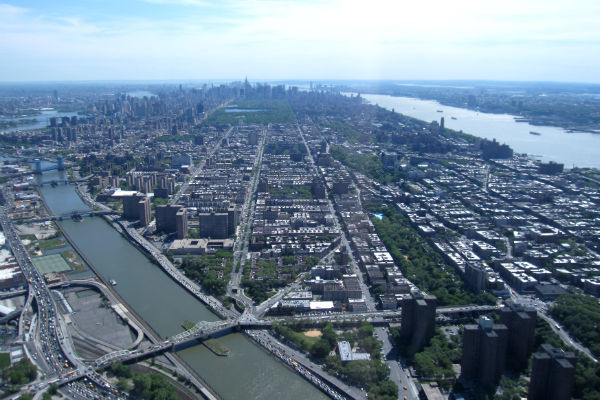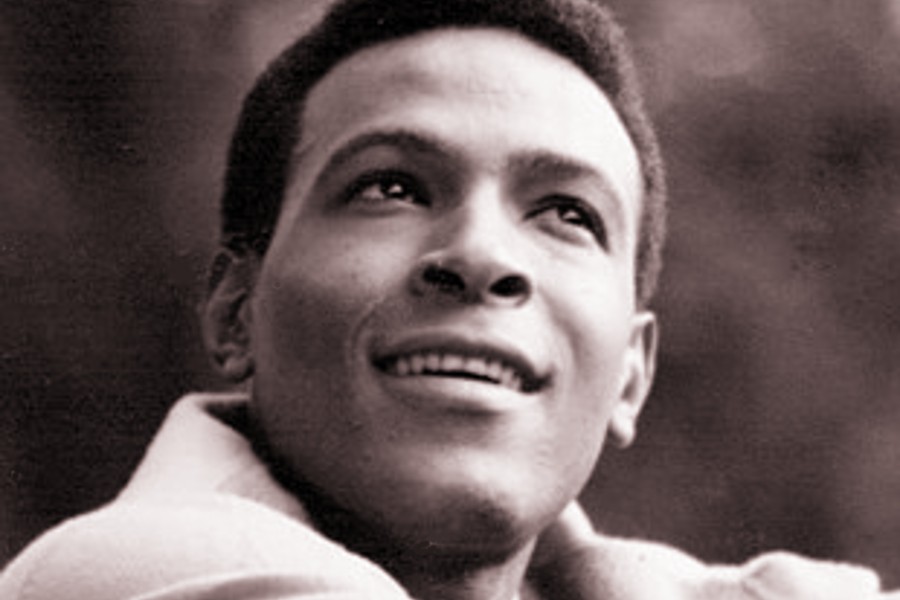 The Health Department today announced “Take the Pressure Off, NYC!”, its first citywide initiative to prevent and control high blood pressure from Harlem to Hollis. The Department announced Take the Pressure Off, NYC! today at the second annual citywide High Blood Pressure Coalition Summit, which brought together over 100 stakeholders in 13 sectors – including faith- and community-based organizations, employers, health care systems, pharmacies, organized labor, health insurance payers and government. These stakeholders identified three key areas which will serve as a roadmap for Take the Pressure Off, NYC!: high blood pressure awareness, heart-healthy behaviors, and treatment adherence. More than one in four New Yorkers have high blood pressure, a key risk factor for heart disease and stroke, two conditions that contribute to more than one in five premature deaths among adults in New York City each year. Between 2007 and 2016, there was no decrease in high blood pressure rates in New York City, and the initiative aims to reduce blood pressure for 150,000 New Yorkers by 2022. Take the Pressure Off, NYC! also advances New York City’s commitment to reduce the premature death rate by 25 percent by 2040 as part of its OneNYC Plan.
The Health Department today announced “Take the Pressure Off, NYC!”, its first citywide initiative to prevent and control high blood pressure from Harlem to Hollis. The Department announced Take the Pressure Off, NYC! today at the second annual citywide High Blood Pressure Coalition Summit, which brought together over 100 stakeholders in 13 sectors – including faith- and community-based organizations, employers, health care systems, pharmacies, organized labor, health insurance payers and government. These stakeholders identified three key areas which will serve as a roadmap for Take the Pressure Off, NYC!: high blood pressure awareness, heart-healthy behaviors, and treatment adherence. More than one in four New Yorkers have high blood pressure, a key risk factor for heart disease and stroke, two conditions that contribute to more than one in five premature deaths among adults in New York City each year. Between 2007 and 2016, there was no decrease in high blood pressure rates in New York City, and the initiative aims to reduce blood pressure for 150,000 New Yorkers by 2022. Take the Pressure Off, NYC! also advances New York City’s commitment to reduce the premature death rate by 25 percent by 2040 as part of its OneNYC Plan.
“High blood pressure often has no symptoms, but left uncontrolled, it can be fatal,” said Acting Health Commissioner Dr. Oxiris Barbot. “More than one in four New Yorkers have high blood pressure, and many don’t know they have it. The Health Department brought together stakeholders from every angle of healthcare delivery, from hospitals to pharmacies to community organizations, to figure out how we can tackle the pernicious issue of high blood pressure. Today, with Take the Pressure Off, we’re able to present our plan to prevent and control high blood pressure and help New Yorkers live longer, healthier lives.”
“Heart disease is one of the leading causes of early death for New Yorkers and raised blood pressure is one of the key reasons why,” said Deputy Commissioner Dr. Sonia Angell and Chair of the Take the Pressure Off, NYC! Steering Committee. “Everyone deserves to have the best opportunities to prevent and control high blood pressure. This coalition unites 100 plus stakeholders from 13 sectors to break down silos between the health care system and communities. By increasing awareness, supporting healthy communities, and improving adherence to treatment, together, we can help reduce raised blood pressure and save lives. Let’s Take the Pressure Off, NYC!”
“Many New Yorkers are impacted by hypertension; they either have it themselves or know someone who has it,” said Nichola Davis, M.D., M.S., Assistant Vice President, Chronic Diseases and Prevention, Office of Population Health, NYC Health + Hospitals. “This inaugural plan is a tremendous effort, which brings together multiple sectors with a role in prevention and treatment of hypertension. I am excited about this focus of the NYC Health Department; it is greatly needed and will help to improve the health of New Yorkers.”
“High blood pressure is a silent killer,” said Assistant Speaker Felix W. Ortiz. “Everyone should have their blood pressure checked regularly. Treatment is an absolute ‘must’ for those at risk. Nothing is more important than health and family. Let’s all work together to bring our blood pressure rates down to safe levels.”
“High blood pressure can lead to fatal consequences if left unchecked, and many people don’t even know they have it,” said Staten Island Borough President James L. Oddo. “I encourage all Staten Islanders to take control of their health by getting their blood pressure checked. This simple, painless test can tell you if you’re at higher risk for heart disease or stroke and lead you on the path to getting healthier.”
“Reducing high blood pressure has been a priority for us at Healthfirst for many years,” said Susan J Beane, MD, Vice President and Medical Director for Clinical Partnerships at Healthfirst. “We are very excited to be part of the citywide coalition as it brings many partners new and existing to work together. I’m really looking forward to moving the needle for lowering blood pressure, especially in members and areas where treating high blood pressure has been a challenge.”
“Hypertension can be a debilitating illness. However, if properly managed, it does not have to result in decreased quality of life and a premature loss in independence,” said Porsha Hall, Assistant Director of Health Promotion & Evaluation at SAGE. “This initiative has been successful in bringing together diverse groups of individuals with the common goal of lowering blood pressure across communities. It has personally provided me with valuable insights and resources to assist some of society’s most marginalized group, LGBT elders, in maintaining a high quality of life throughout the life course.”
“It was a privilege working with the NYC Health Department on the hypertension initiative, and as independent pharmacists, we are an integral part of the healthcare team,” said Ilana Aminov, R.Ph, Board Member of the New York City Pharmacists Society.
The Department has also placed 55 blood pressure kiosks in areas with high rates of high blood pressure, including East and Central Harlem, North and Central Brooklyn, and the South Bronx.
This year, the Health Department announced a collaboration with over 1,200 New York City chain and independent pharmacies to promote access to free blood pressure checks across the five boroughs. The locations can be found on the NYC Health Map, an online tool New Yorkers can use to identify different health services available in their communities. The Department has also placed 55 blood pressure kiosks in areas with high rates of high blood pressure, including East and Central Harlem, North and Central Brooklyn, and the South Bronx.
This year, the Health Department conducted a blood pressure “detailing” campaign, in which agency staff hold one-on-one meetings with more than 1,000 health care providers – including primary care staff, physicians, and pharmacists – to discuss how to help patients know their blood pressure numbers and take control of high blood pressure.
Additionally, the agency launched “1 in 4” media campaign on the dangers of high blood pressure and the NYC Heart Age Calculator. The calculator is an online tool for New Yorkers to find out their Heart Age, which is an estimate of your heart’s age based on various risk factors, including blood pressure. Visit nyc.gov/health/heartage to learn your heart age.
As part of the Take the Pressure Off, NYC! plan, coalition members committed towards working to achieve the following:
- All New Yorkers will know and understand their blood pressure numbers, why high blood pressure is dangerous and how to get care for high blood pressure.
- All New Yorkers will live, work, learn and play in environments where preventing and managing high blood pressure is the easy choice.
- All New Yorkers will have access to the right treatment, at the right time, to achieve and maintain an optimal blood pressure.
Example coalition activities may include:
- Aligning and amplifying reach of high blood pressure messaging.
- Increasing access to and awareness of free blood pressure checks in the community.
- Promoting Health Bucks, farmers markets and healthy eating demonstration programs.
- Promoting blood pressure self-management, including self-monitoring of blood pressure.
Uncontrolled high blood pressure can lead to many health complications, including kidney disease, sexual dysfunction, and vision loss. In pregnant women, it can lead to preterm birth and increase the risk for maternal and fetal complications, including low birth weight and infant death. Individual risk factors that can cause high blood pressure include an unhealthy and high sodium diet, not getting enough physical activity, drinking excess alcohol, and having excess weight.
Black adults are 1.9 times more likely to die prematurely of heart disease than Whites and 3.1 times more likely to die prematurely of stoke. Latino adults were 1.9 times more likely to die prematurely due to stroke than White adults. Adults with depression are nearly twice as likely to report having high blood pressure than those who did not have depression (48 percent versus 26 percent). Among adults who have diabetes, 70 percent had high blood pressure, while among adults who have obesity, 43 percent had high blood pressure.
In New York City, Black and Latino adults are more likely to report having high blood pressure as compared to other racial and ethnic groups. Black adults are 1.9 times more likely to die prematurely of heart disease than Whites and 3.1 times more likely to die prematurely of stoke. Latino adults were 1.9 times more likely to die prematurely due to stroke than White adults. Adults with depression are nearly twice as likely to report having high blood pressure than those who did not have depression (48 percent versus 26 percent). Among adults who have diabetes, 70 percent had high blood pressure, while among adults who have obesity, 43 percent had high blood pressure.
High blood pressure occurs when the force of blood pushing against the walls of your blood vessels is consistently higher than it should be. Blood pressure is reported with two numbers written over the other: the top number is the pressure in your arteries when the heart pumps blood; the bottom number is the pressure in the arteries when the heart relaxes between heartbeats. A normal blood pressure level is less than 120/80 and a high level is 140/90 or above.
For help finding a health care provider, call 311. To find more resources about high blood pressure, visit nyc.gov/health and search “high blood pressure.”
Become a Harlem Insider!
By submitting this form, you are consenting to receive marketing emails from: Harlem World Magazine, 2521 1/2 west 42nd street, Los Angeles, CA, 90008, https://www.harlemworldmagazine.com. You can revoke your consent to receive emails at any time by using the SafeUnsubscribe® link, found at the bottom of every email. Emails are serviced by Constant Contact








